New fiction, both novels and short stories, memoir, and poetry.
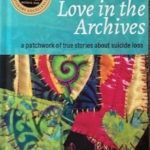 Eileen Vorbach Collins, Love in the Archives, Apprentice House 11/23, nonfiction (suicide).
Eileen Vorbach Collins, Love in the Archives, Apprentice House 11/23, nonfiction (suicide).
Eileen Vorbach Collins’s Love in the Archives, a Patchwork of True Stories About Suicide Loss, is a collection of linked narrative essays weaving themes of child loss, suicide, interfaith marriage and the natural world. Many of the essays have been previously published. Two were nominated for a Pushcart Prize. The book has received a Pencraft Best Book Award, and is a finalist for the Story Circle Network’s Sarton Award and a Forward Indies Award. “In prose as clear and concise as can be, from a heart that hopes to heal, Collins reaches a benchmark in the grieving process in which memory really does become a blessing. The result is breath-taking and breath-giving.”—Madeleine Blais, Pulitzer-prize winning journalist and author of the family memoir, Uphill Walkers, winner of the NYC NAMI Ken Book Award.
 Mindy Friddle, Her Best Self, Regal House 5/24, fiction (novel).
Mindy Friddle, Her Best Self, Regal House 5/24, fiction (novel).
Janelle Wolf longs to be the woman she once was, an adored wife, a loving mother, a career woman, a force in her community—before a mysterious car accident stole her memories, ruined her reputation, and upended her life. These days, her troubled family needs that capable woman from the past, the one she calls “Janelle Before.” Enter Lana, an alluring and magnetic psychic healer who meets secretly with Janelle. Lana coaxes Janelle to remember the circumstances of her accident in order to recover Janelle’s “best self.” Instead, Janelle uncovers the ugly truth behind that night. The revelations unravel Janelle’s marriage, disrupt her family, and turn her small southern town upside down. Written with wry humor, this diabolically entertaining tale of deception, temptation, and love is filled with dark twists, exploring what happens when the transgressions of the past come back with a vengeance.
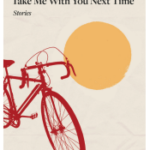 Janis Hubschman, Take Me With You Next Time, Betty 10/24, fiction (short stories).
Janis Hubschman, Take Me With You Next Time, Betty 10/24, fiction (short stories).
Janis Hubschman’s debut collection, Take Me With You Next Time, forthcoming October 15, 2024, the inaugural publication of Betty, an imprint of the award-winning WTAW Press. Lori Ostlund, author of After the Parade and The Bigness of the World writes: “The women in the twelve stories that make up Janis Hubschman’s Take Me With You Next Time are decades apart in age, yet they all want the same thing: to be truly seen—by their husbands and lovers, children, the world. Hubschman sees them, and she shows them to us—their faults and failures, successes and hopes—all presented with dark humor and deep compassion and startling moments of surprise. Take Me With You Next Time will leave you wanting to be taken along on all of this masterful storyteller’s next times.”
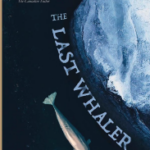 Cynthia Reeves, The Last Whaler, Regal House 9/23, fiction (novel).
Cynthia Reeves, The Last Whaler, Regal House 9/23, fiction (novel).
In her remarkable prose, Reeves gives us the story of a beluga whaler and his botanist wife, who are stranded at his remote whaling station on Svalbard during the dark season of 1937-38 and must battle predators, the elements, an unplanned pregnancy, and their own limitations in order to survive. The Last Whaler considers the impact of humans on pristine environments, the isolation of mental illness, the sustenance of religious faith, and the solace of storytelling. A major part of the novel is about child loss, grief, and post-partum depression. “The Last Whaler reimagines the tropes of Victorian and Romantic novels through a uniquely feminist environmentalist lens, rendering a classic story as timely, contemporary fiction …. a raw, beautiful novel you will not soon forget.”—Tanya Whiton, author of Two for the Road
 Margaret Sáraco, Even the Dog Was Quiet,Human Error Publishing 2023, poetry.
Margaret Sáraco, Even the Dog Was Quiet,Human Error Publishing 2023, poetry.
Even the Dog was Quiet is a book of poetry, delivered in hushed overtones when life catches you looking. The collection tells stories through poetry in memoir fashion. “Risk” and “Rue” serve as a call and response to the perils of youth and pain of aging. “A Collage of Misery” about the Gettysburg battlefield and “Early Spring” written about a land trust in present day Baltimore, share an important honey locust tree. Family, friends and strangers, journey with the author in ordinary places but often in extraordinary circumstances. Included in the book are Alex Polner’s interior illustrations as well as his pastel drawing “The Crossing” on the cover.
 Sarah Sarai, Bright-Eyed, Poets Wear Prada 3/24, poetry.
Sarah Sarai, Bright-Eyed, Poets Wear Prada 3/24, poetry.
Thirty-two poems recall this native New Yorker’s childhood relocation (at the age of eight) with her family to sunny California; growing up on the West Coast in the 1960s and 70s — as a preteen through early adulthood; and her responses to her new surroundings and the times. Several poems explore interracial tension and coexistence from the viewpoint of the younger sibling whose older sister created an interracial family. The poet explores her relationships with her nephew, niece, and brother-in-law from the perspectives of both family and race, as her queer identity. If you like the work of Diane Wakoski or James Broughton, you will enjoy the whim and wit of this book. This book is suitable for both Young Adult and Adult audiences (Ages 15 through 18+).
 Christy Tending, High Priestess of the Apocalypse, ELJ Editions 6/24, memoir in flash.
Christy Tending, High Priestess of the Apocalypse, ELJ Editions 6/24, memoir in flash.
Christy Tending’s High Priestess of the Apocalypse is a lyrical exploration of disobedience, grief, and healing. A memoir told in flash, it reckons with the intersections of motherhood and climate grief, the impulse to fight for what we love, and how to turn dread into action. It examines the future of our planet and the humanity that informs our longing for a better world. Part memoir, part direct action primer, part love letter to the new world we’re collectively fighting to create.
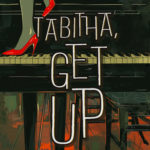 Lee Upton, Tabitha, Get Up, Sagging Meniscus 5/24, fiction (novel).
Lee Upton, Tabitha, Get Up, Sagging Meniscus 5/24, fiction (novel).
Tabitha is a lonely fifty-year-old biographer who, in order to restore her self-respect and pay her rent, attempts to write two biographies simultaneously: one about an actor so famous his face is on the side of buses, and the other about a popular writer of children’s books recently outed as an author of erotic fiction. Is Tabitha ready to deal with interviewing an actor so handsome and charismatic she thinks he should be bottled and sprayed on belligerent people as a form of crowd control? Can she form a genuine friendship with a cult novelist who pressures her to compromise her values? While facing these and other challenges, Tabitha is bedeviled by memories of her long-ago divorce. Is it ever too late to change your life—from the bottom up?
 Dorinda Wegener, Four Fields, Trio House 7/24, poetry.
Dorinda Wegener, Four Fields, Trio House 7/24, poetry.
Wegener’s Four Fields weaves family traditions and natural landscapes into a stunning tapestry of loss, trauma, growth, and maturity. Metaphor envelops her rich language, with words becoming “green as forgiveness” and “trepid as love” as she explores complex familial bonds, religious tenets, and human identity. Wegener’s work conveys emotional depth through vivid imagery, transforming birds, insects, and flowers into symbols that represent the truths of life. Four Fields invites readers into its winding pages, immersing them in the croft and leaving a lasting impact with each cedar waxwing’s cry.
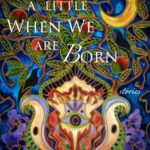 Tara Isabel Zambrano, Ruined a Little When We Are Born, Dzanc 10/24, fiction (short stories).
Tara Isabel Zambrano, Ruined a Little When We Are Born, Dzanc 10/24, fiction (short stories).
For fans of Carmen Maria Machado and Jhumpa Lahiri, Ruined a Little When We Are Born delivers a stunning exploration of family and motherhood against the backdrop of Indian diaspora and culture. Tara Isabel Zambrano weaves elements from both the physical and supernatural worlds to beg the question: are we all ruined a little from our first breath? A young couple ponders their opposing religions after one of them finds a cow’s tongue left on their porch. A widow helps her neighbor mourn the death of his wife by burying the woman’s belongings in the backyard. A mother forces her daughter to undergo various rituals to lighten her skin to find a good match. And when a man needs a son as his heir, he brings his new, much younger wife to live with his current wife and daughter, changing his daughter’s life in ways she couldn’t have imagined. In stunning prose, Zambrano’s stories traverse the delights and fears of parenthood in terrifying clarity, exploring the suppression and display of desire in women and girls in daring candor.
